by Frank Vespe
The Maryland Racing Commission today voted by a 5-2 margin to implement a program to boost the state’s beleaguered breeding industry, a step several stakeholders described as crucial to the future of that industry.
The vote followed a contentious debate in which one Commissioner suggested that the Commission was “railroading [the proposal]” and a horsemen’s representative avowed that the timing “couldn’t be worse.”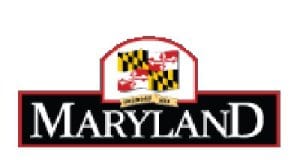
The proposal approved today had been developed by a task force, convened by Maryland Racing Commission chairman Bruce Quade to identify ways to promote breeding in the state, which has declined precipitously in recent years. Its most controversial provision would employ purse account funds to enhance purses for Maryland-bred runners. The overall value of purses would not change, though the change would lead to a small reduction in purses for non-Maryland-bred horses.
Under the proposal, which has the support of both the Maryland Horse Breeders Association (MHBA) and the Maryland Jockey Club, which owns the racetracks, in 2013 and 2014 three percent of purses would be reprogrammed to support enhancements for Maryland-breds that finish in the money in non-claiming races and in claiming races in which the horse is entered for at least $10,000.
That reprogramming would dedicate about one million dollars to state-breds, allowing for a 20 percent enhancement for Maryland-breds in 2013 and 2014. In 2015 and beyond, the amount reprogrammed would rise to six percent, enabling the enhancement to rise to 30 percent and apply to horses at all levels.
Advocates of the proposal believe that the proposal is both vital and urgent and will provide both an immediate boost to breeding in Maryland and longer-term stability. “This program will allow breeding to flourish in the future,” Commission chairman Quade averred.
[pullquote]This program will allow breeding to flourish in the future,” Commission chairman Quade averred.[/pullquote]
Cricket Goodall, executive director of the MHBA, told the Commission that it had her group’s “full support for moving ahead.”
And Tom Chuckas, president of the Maryland Jockey Club, said that his organization supported the program “on a multitude of levels.” In particular, Chuckas said that he “absolutely” believes that there will be attempts next year in Annapolis to reduce or eliminate racing’s share of slots proceed; an initiative to boost breeding and its attendant jobs and open space benefits, he claimed, could help to head those off. “I think it resonates well in Annapolis and the state,” he said.
But critics pointed to a process in which, they claimed, neither other stakeholders nor commission members had seen the final version of the proposal prior to the meeting.
Commissioner Louis Ulman said that though he had “basically no” issue with the substance of the proposal, the process troubled him, leading to his “no” vote. “I thought the stakeholders and the commissioners should have had time to review the proposal,” he said.
Commissioner Mary Louise Preis rejected that notion, however. “We’ve seen this [proposal] in various forms for months,” she said. “This has got to be done; I think we need to go forward.”
[pullquote]This has got to be done; I think we need to go forward,” said Commissioner Preis.[/pullquote]
And go forward the Commission did. Commissioner John Franzone joined Ulman in opposing the proposal, while Commissioners David Hayden, Thomas Winebrener, and Ernest Grecco joined Quade and Preis in support.
“I think it is a terrific day for breeding, owning, and racing a Maryland-bred,” said task force member R. Larry Johnson, who is also a member of the boards of both the MTHA and the MHBA. “I will foal more mares in Maryland.”
Commissioner David Hayden, who was a member of the task force, agreed. “The program is beneficial to anybody who breeds and races horses in Maryland,” he said.
And Quade added, “I believe very strongly that we did the right thing. It was crucial that it be instituted immediately.”


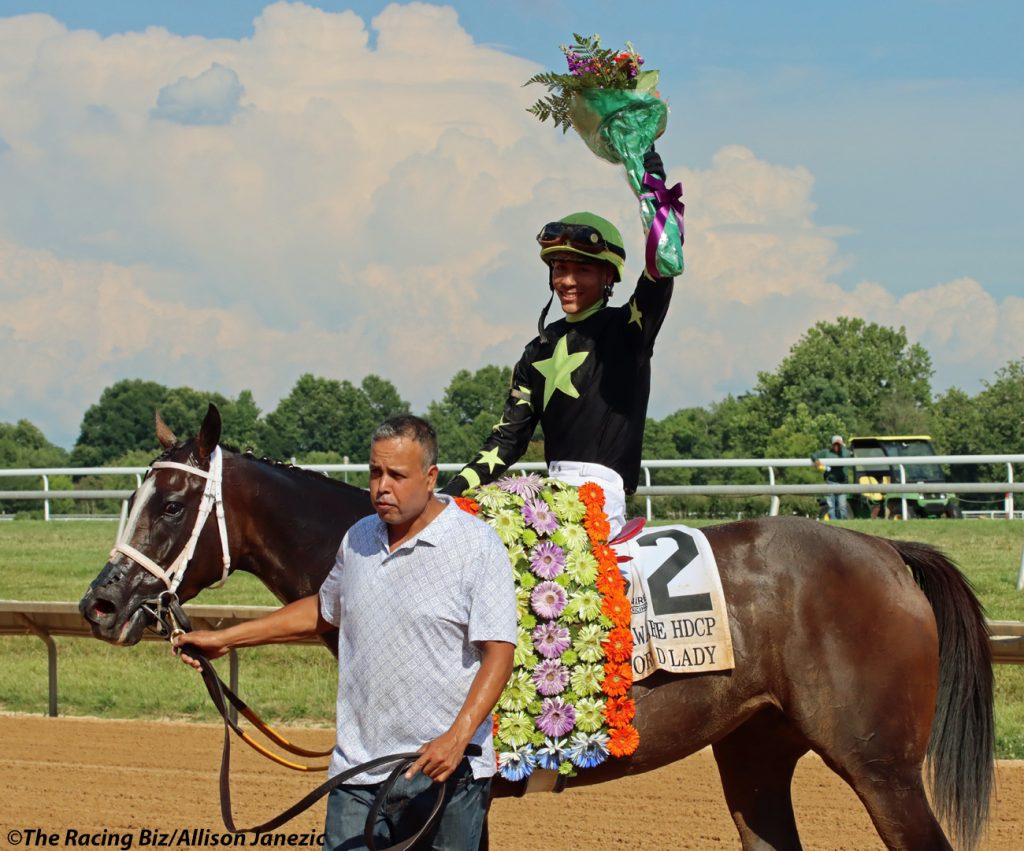
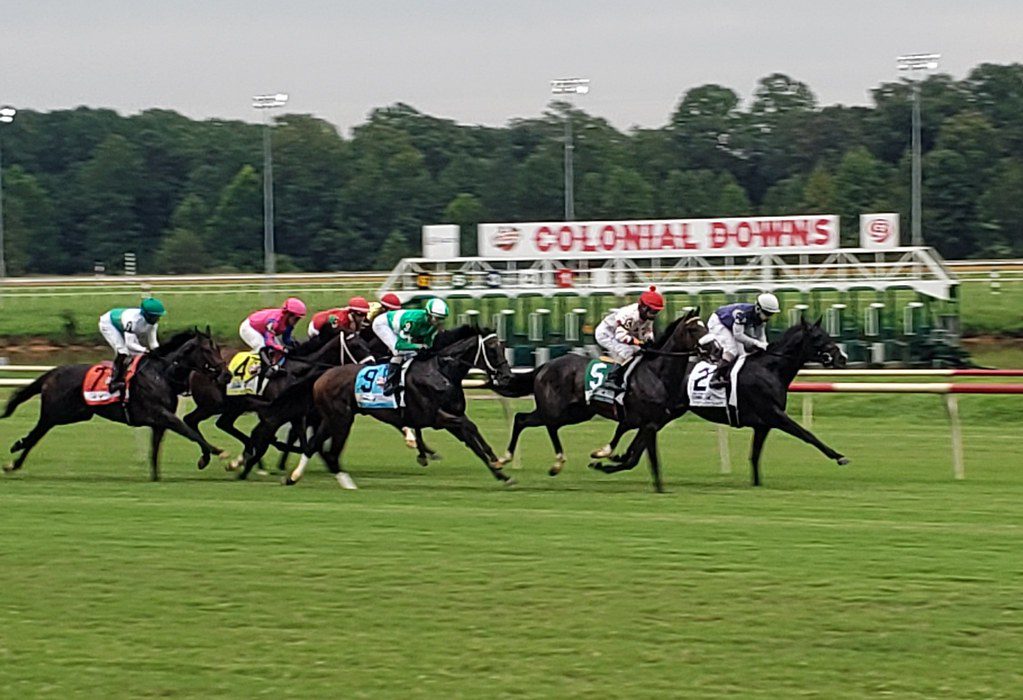
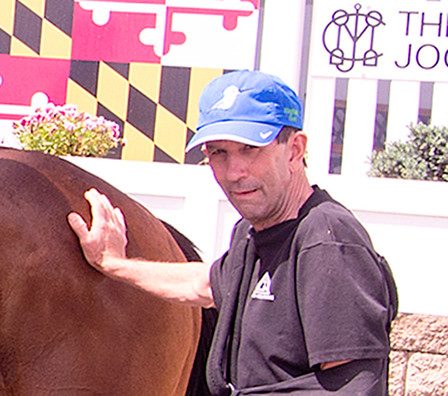
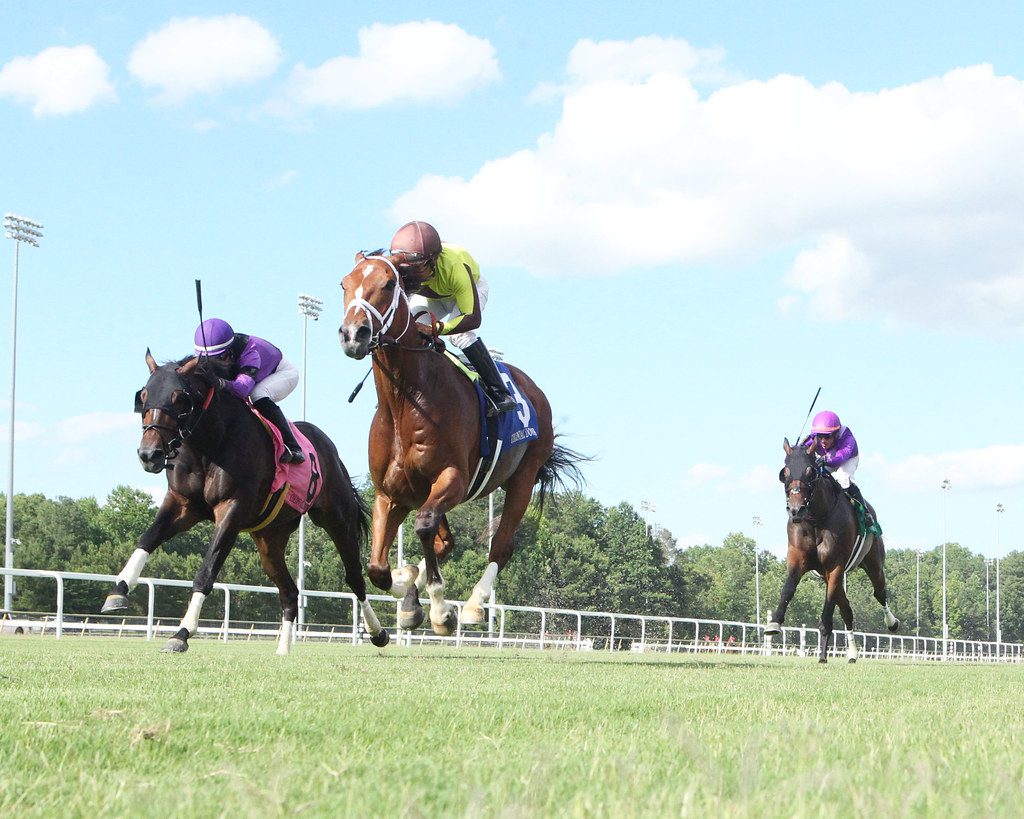
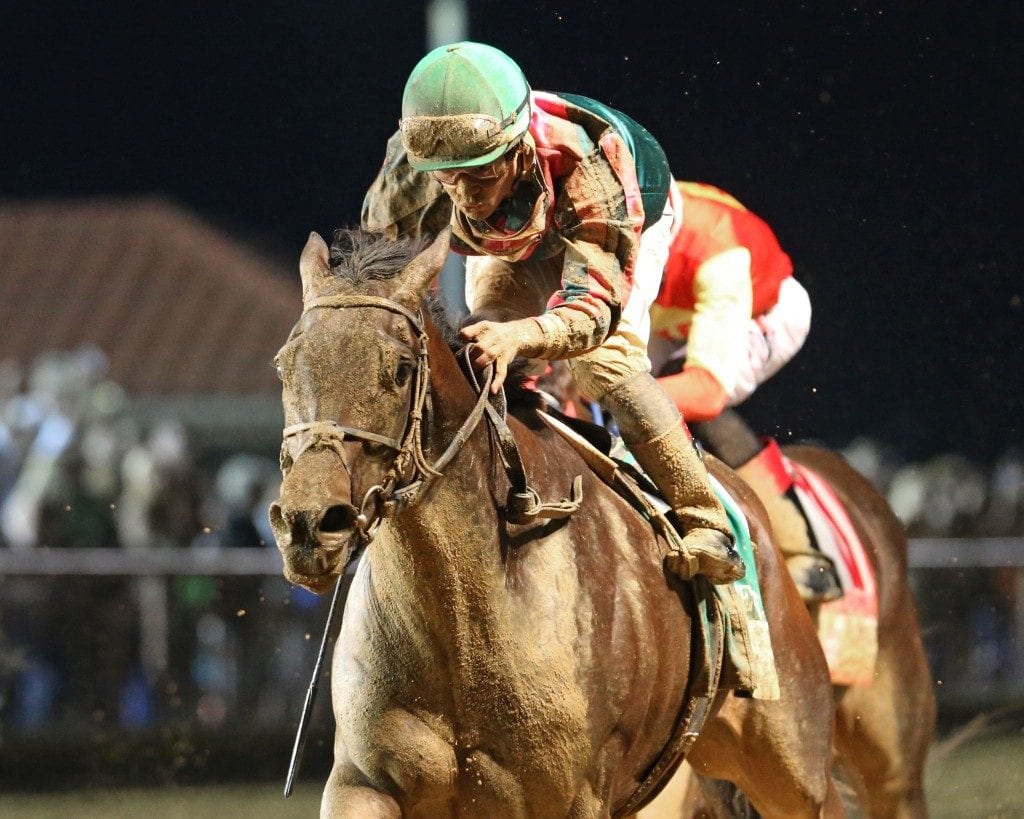
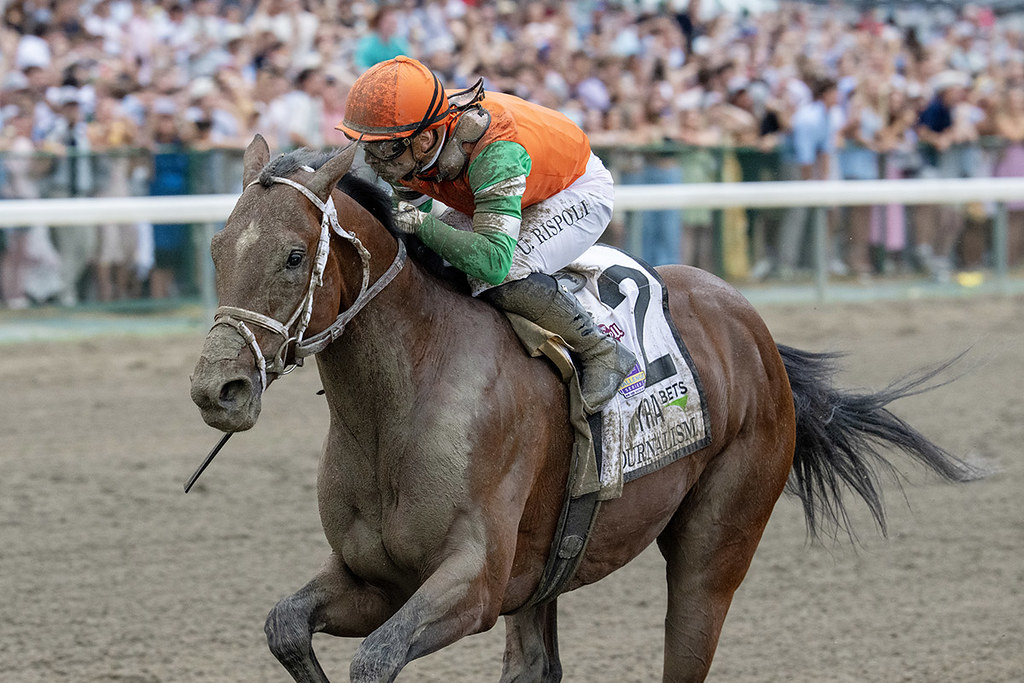
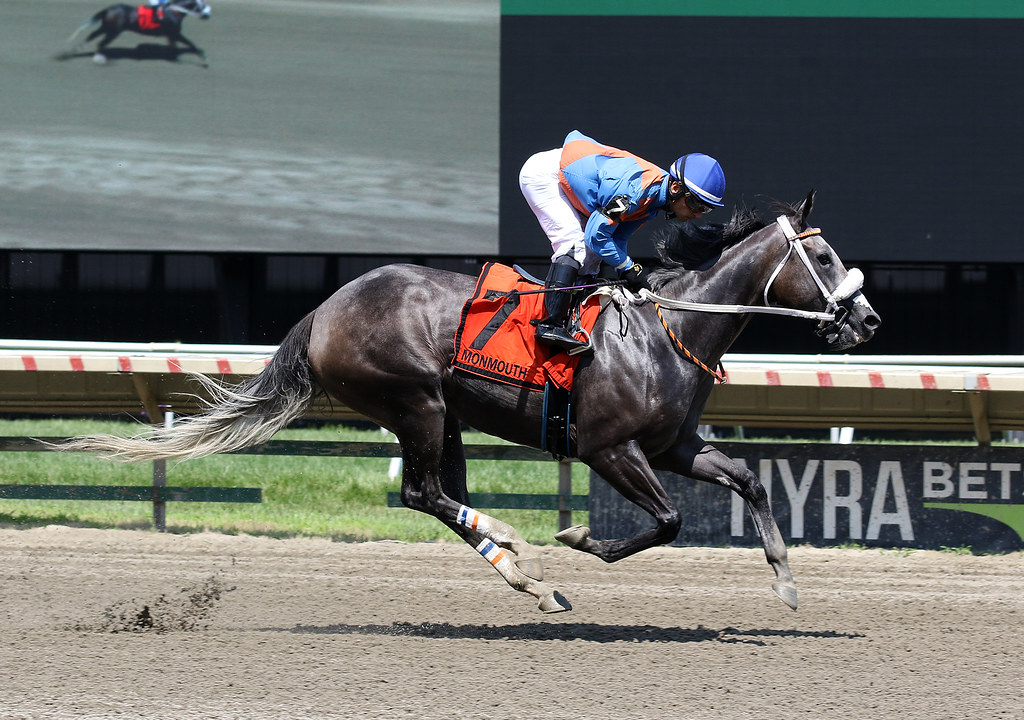
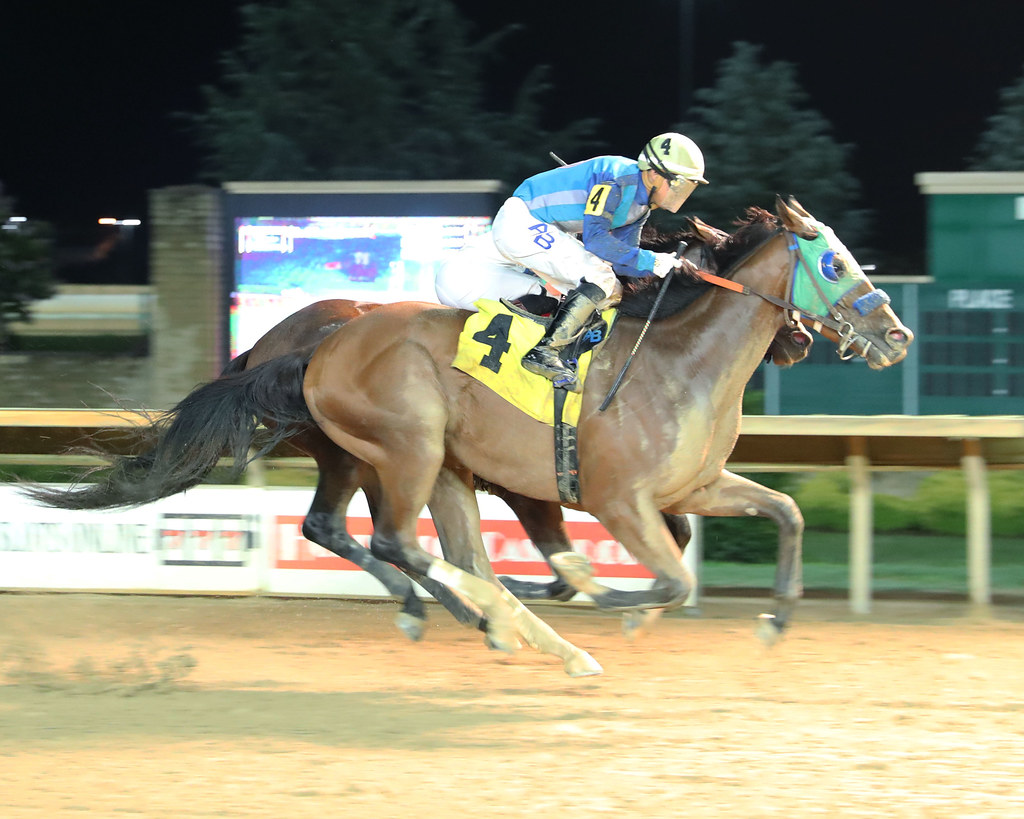
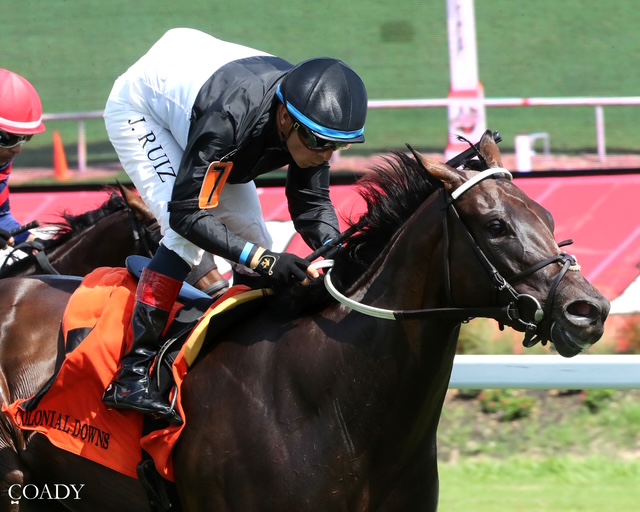

anonymous racing lover
21st May 2013The two “no” votes came from commissioners who race horses and might be trying to please their trainers.
MD RACER
21st May 2013What a great day for Maryland racing ! Ensuring a healthy and vibrant breeding industry in Maryland will help to facilitate the long term survival of Maryland racing. Indeed, the demise of Maryland breeding would certainly lead to the end of racing in Maryland.
I am quite surprised by Foreman’s concerns. The MTHA has spent $1.5 million (brokered by an insider) on jockey insurance, $150,000 to an outgoing executive, has attempted to pass legislation to enable the purchase of days at Timonium (it failed but I have never seen an MTHA Board vote on the issue), and most recently using purse funds to non check getting horses to support an MTHA sponsored PAC.
While Foreman is asking for Attorney General opinions, the MRC should ask for opinions on the following :
1. Is it a conflict of interest for an MTHA Board member to broker insurance to the MTHA when conflicts of interest are strictly prohibited by MTHA bylaws and THIS board has not waived any conflicts ?
2. Is it a conflict of interest for the General Counsel of the MTHA to represent one member of the membership versus another in adversarial proceedings ?
3.Is it legal to use state appropriated funds to support a PAC that might be in a position to oppose the state legislature ? Especially considering that one of the proposed purposes of the PAC is a retirement program that has not been established nor have any guidelines been published. Yet, funds are being collected. Is it a conflict of interest for any retirement farms that may receive PAC funds to have any business or ongoing relationship with MTHA Board members ?
4. Is it a conflict of interest for the General Counsel of the MTHA to help establish new drug protocols for Maryland and then argue against the thresholds that were established or the procedures established ? Perhaps the MRC should support the proposed USADA legislation and forget regional solutions.
ETC ETC ETC ETC
I wholeheartedly endorse anyone who wants to get Attorney General opinions, as long as they get ALL questions answered. The MRC should not hesitate to ask for a multitude of Attorney General opinions. Additionally, it might be beneficial to reach out to The Jockey Club and get their feedback on these and other governance/conflict of interest issues. They could be a good benchmark.
Thank you MRC ! Thank you MHBA ! Thank you MJC ! Than you Breeder Task Force ! Onward and upward ! It seems most of us are on the same page !
Bill Reighlter
21st May 2013The parties had months to review this proposal. It is just what the industry
needs to make Maryland competitive with the other states. The program
will encourage stallions and mares to come back to the state. It will revitalize all segments of the industry bringing Maryland back from being a leader instead of a laggard. After all, isn’t this what our legislators intended when they aloted us this money? Bold move by the commission!
Heart's Desire Farm, LLC
21st May 2013Awesome, awesome news!! MD breeder and owners NEED these incentives!
Lead Pony
22nd May 2013Mr Ulman did not attend the February MRC meeting when the task force report was given and has had 8 weeks to study it. If he is too busy to participate please resign sir. Mr Franzone attended the February meeting but wandered around the room, staring out the window, clearly disinterested. His behavior was nothing short of rude.
In West Virginia the slot proceeds are split 60-40- horsemen- breeders. Maryland is 89%-11% The change makes it 86% 14% breeders. A 3% shift is a pittance. Perhaps the slot money should be removed from their control- Department of Agriculture perhaps?
The Biz
22nd May 2013thanks for checking in, folks. There certainly appears to be a lot of support for a program like this, and it’s also the way the wind seems to be blowing. Whether this is the end of the story or merely one step in a journey is the next question.